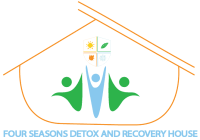Addiction is a complex and deeply personal struggle. For many, it’s not just one substance or behavior that causes distress but a combination—alcohol, prescription drugs, illicit substances, gambling, or even compulsive behaviors like shopping or gambling. Managing multiple addictions is a particularly challenging journey, but it’s one that can be navigated with the right support, strategy, and professional guidance.
Understanding the Nature of Multiple Addictions
Multiple addictions—also referred to as co-occurring or cross-addictions—occur when a person is dependent on more than one substance or behavior at the same time. For example, someone might use alcohol and opioids together or cycle between drug use and compulsive gambling. These addictions often interact, reinforcing each other and complicating treatment and recovery.
Several underlying factors contribute to multiple addictions:
- Emotional pain or trauma: Unresolved trauma can lead individuals to self-medicate with multiple substances or behaviors.
- Mental health disorders: Co-occurring mental health conditions like anxiety, depression, or PTSD often fuel addictive behaviors.
- Genetics and environment: A family history of addiction or exposure to high-risk environments can increase vulnerability.
- Neurochemical reinforcement: Different substances and behaviors trigger dopamine release in the brain, reinforcing their use.
Understanding the root causes and recognizing the interconnectedness of these addictions is crucial for developing a treatment plan that truly works.
Challenges in Treating Multiple Addictions
When someone struggles with multiple addictions, treatment becomes more intricate. A person might stop using one substance but switch to another, which delays true recovery. Standard treatment programs that focus on a single addiction often fall short when applied to someone with multiple dependencies.
Key challenges include:
- Higher relapse risk: The temptation to fall back on a secondary addiction during stressful periods is strong.
- Complex withdrawal symptoms: Detoxing from multiple substances can create overlapping or conflicting withdrawal effects.
- Psychological complexity: Dual or triple addictions often mask deeper emotional or psychological issues that require integrated care.
Because of these complexities, professional intervention is often necessary. A comprehensive, individualized treatment plan is essential for long-term success.
Strategies for Managing Multiple Addictions
Recovery from multiple addictions is not just possible—it’s achievable with the right mindset, support system, and treatment approach. Here are several strategies that help:
- Seek professional assessment: An accurate diagnosis is the foundation of effective treatment. Professionals can identify co-occurring addictions and mental health issues.
- Choose integrated treatment programs: These programs address all addictions simultaneously and often include therapy, medication-assisted treatment (MAT), support groups, and holistic therapies.
- Engage in therapy: Cognitive Behavioral Therapy (CBT), Dialectical Behavior Therapy (DBT), and trauma-informed therapy are highly effective for managing multiple addictions and their root causes.
- Build a support network: Recovery is not a solo journey. Support from family, friends, and peer groups like 12-step programs or SMART Recovery can make a significant difference.
- Practice self-care: Good nutrition, exercise, mindfulness, and sleep hygiene can support physical and mental healing during recovery.
- Address triggers and stressors: Understanding what leads to addictive behavior—and learning healthier coping mechanisms—is key to long-term recovery.
The Importance of Comprehensive Detox and Ongoing Care
Detoxification is often the first step in managing multiple addictions. A medically supervised detox can safely manage withdrawal symptoms and prepare the body and mind for deeper psychological healing. But detox alone is not enough. Ongoing therapy, lifestyle changes, and relapse prevention planning are critical.
Many people benefit from inpatient treatment programs that provide structured, round-the-clock care and a safe environment to begin the healing process. From there, transitioning to ongoing counseling and community-based support can help maintain progress.
Find Healing with Four Seasons Detox
If you or a loved one is struggling with multiple addictions, know that you’re not alone—and help is available. At Four Seasons Detox, we treat co-occurring addictions with compassion, professionalism, and evidence-based care. Our team of experienced professionals will work with you to create a personalized treatment plan designed to address every aspect of your addiction.
Whether you need medically supervised detox or residential care, we’re here to walk with you every step of the way. Your journey to lasting recovery starts with one phone call. Contact us today to learn more.
Healing is possible—and it starts right here.



